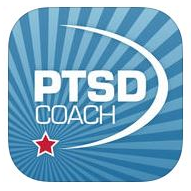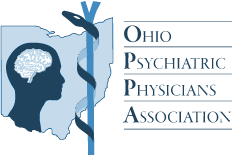Disaster Information
Disasters and traumatic events, like the mass shooting in Dayton Ohio on August 4, 2019, can have tremendous psychological impacts on individuals, even if they are not directly involved. People can experience a range of emotions, including anger, frustration and sadness, and can react in many different ways, including physical and psychological symptoms.
The impacts and reactions can happen immediately or may appear after some time. There are steps that individuals can take for themselves and their families to mitigate and lessen the psychosomatic impacts. This page features resources that can assist in coping with disaster, trauma and tragedy.
After an event is over, the American Psychiatric Physicians Association recommends following these steps to begin coping with the possible stress that follows a tragedy:
- Keep informed about new information and developments, but avoid overexposure to news rebroadcasts of the events. Be sure to use credible sources of information to avoid speculation and rumors.
- Learn what local resources are available to aid those affected by the tragedy and be prepared to share this information.
- If you feel anxious, angry or depressed, you are not alone. Talk to friends, family or colleagues who likely are experiencing the same feelings.
- If you have children, keep open dialogues with them regarding their fears and the traumatic event. Let them know that in time, the tragedy will pass. Don’t minimize the danger, but talk about your ability to cope with tragedy and get through the ordeal.
- Feelings of anxiety and depression following a traumatic event are natural. If these symptoms continue, even after order has been restored, or if these feelings begin to overwhelm you, seek the advice of a psychiatrist in your community.
Common Reactions of Survivors of Disaster and Other Traumatic Events
- Thinking that no one else is having any of the same reactions and that you are alone in dealing with your feelings
- Having trouble falling asleep or staying asleep
- Feeling like you have no energy or like you are always exhausted
- Feeling sad or depressed
- Having stomachaches or headaches
- Feeling like you have too much energy or like you are hyperactive
- Feeling very irritable or angry—fighting with friends or family for no reason
- Being numb—not feeling at all
- Having trouble focusing on schoolwork
- Having periods of confusion
- Drinking alcohol or using illicit drugs or even legal medications to stop your feelings
- Not having any appetite at all, or just the opposite—finding that you are eating too much
(Source: SAMHSA)
Additional Resources
Reactions to Trauma; Recognizing Signs
- Mental Health: A Guide for Faith Leaders: This Guide helps show faith leaders how they can support individuals with a mental illness, and where to direct them for treatment.
- Effects of Disasters: Risk and Resilience Factors (NCPTSD)
- When Terrible Things Happen, What You May Experience (NCTSN/NCPTSD-PFA)
- Community Violence: The Effects on Children and Teens (NCPTSD)
Coping/Managing Stress
- Coping After Tragedy
- Tips for Survivors of a Disaster or Other Traumatic Event: Managing Stress (Spanish, Punjabi) (SAMHSA)
- Asking for Help. Do you Know How? (CSTS)
Coping/Recovery – Specific Circumstances
- Recovery After Witnessing a Traumatic Event (CSTS)
- Coping with Stress Following a Mass Shooting (CSTS)
- Coping with Stress During Infectious Disease Outbreaks (Spanish) (SAMHSA)
- Alcohol, Medication, and Drug Use After Disaster (NCTSN/NCPTSD - PFA)
- Helping Families Deal with the Stress of Relocation after a Disaster (Agency for Toxic Substances and Disease Registry, ATSDR)
Dealing with Grief
- How to Deal with Grief (Punjabi) (SAMHSA)
- Tips for Survivors: Coping with Grief After Community Violence (SAMHSA)
- Children and Grief (AACAP)

An app from the U.S. Department of Veterans Affairs. PTSD Coach provides users with information about post-traumatic stress disorder (PTSD), including educational resources, information about professional care, a self-assessment tool, opportunities to find support, and tools to help manage the stresses of daily life with PTSD.
Addressing the Needs of the Seriously Mentally Ill in Disaster
Coping with Stress Following a Mass Shooting
Helping Students After a Disaster
Grief Leadership: Leadership in the Wake of Tragedy
Information for First Responders on Emotional Reactions to Human Bodies in Mass Death
Helping Community and Families Recover After Disaster – Safety, Recovery and Hope
Recovery After Witnessing a Traumatic Event
Restoring a Sense of Well-Being in Children After a Disaster

